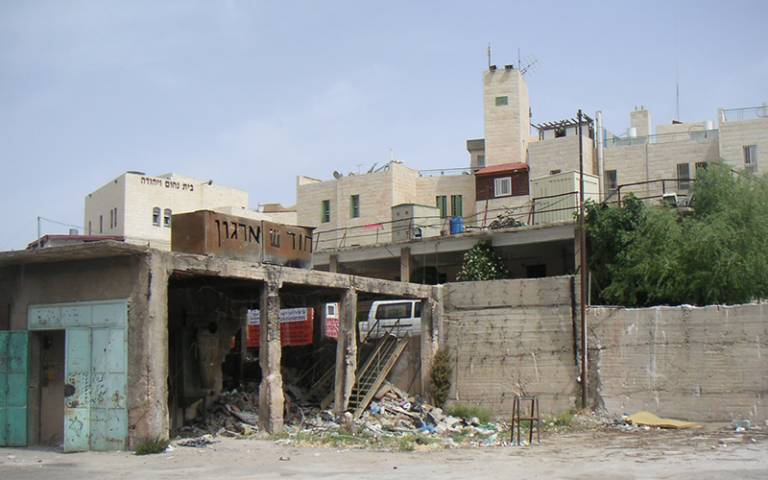Displaceability – the new foundation of urban citizenship?
23 May 2019, 5:30 pm–7:00 pm

Event Information
Open to
- All
Organiser
-
Haim Yacobi
Location
-
DPU Room 10134 Tavistock SquareLondonWC1H 9EZ
The talk develops the concept of 'displaceability' as a central, yet often overlooked, dimension of urban citizenship. Displacement denotes the involuntary removal of individuals or communities from their houses, lands, localities, rights or belongings. On the basis of studying urban regions of the global 'southeast' with a focus on Israel/Palestine, the lecture suggests that displaceability is on the rise, and is increasingly related to strategies of urban legal and planning regimes. Theoretically, the talk observes the renewed relevance of colonial relations in most contemporary urban regions. These, in turn, produces a process of 'gray spacing' in which growing parts of 'the urban' are placed between the 'lightness' of legality, inclusion, safety and membership, and the 'darkness' of criminality, exclusion, risk and eviction. Gray spacing places residents in 'permanent temporariness' and thus places growing numbers of residents – chiefly immigrants, minorities and the young -- under the 'shadow' of potential displacement. This process, together with the deepening of late capitalist policies, fundamentally transforms the nature of urban rights and powers, invoking the notion of 'metrozenship' as new horizon of urban mobilization. These insights call for further comparison and theorizations 'from the global South-East' as a way of enriching and diversifying contemporary urban studies.
Biography
Oren Yifachel teaches urban studies and political and legal geography at Ben-Gurion University, Beersheba. His research has focused on critical understandings of the relations between space, power and conflict. Yiftachel holds the Lloyd Hurst Family Chair in Urban Studies. Yiftachel has taught at a range of universities in Australia, Israel, the US, India, South Africa and Italy. His research has focused on critical understandings of the relations between space, power and conflict. He has published over 100 articles and ten authored and edited books, including Planning a Mixed Region in Israel (1992), Planning as Control: Policy and Resistance in Divided Societies (Pergamon, 1995); Israelis in Conflict (Sussex, 2004), Ethnocracy: Land and Identity Politics in Israel/Palestine (Penn 2006); Indigenous (in)Justice (Harvard, 2012) and Emptied Lands: Legal Geography of Bedouins in the Negev (forthcoming Stanford, 2018). Yiftachel is an activist, who has worked with a range of human rights and civil society organizations, including the RCUV -- council for unrecognized Bedouin villages, "Adva" – Center for social equality, and as the chair of B'Tselem – monitoring human rights violations in the Palestinian Territories. Recently, he founded with colleagues a new decolonizing peace movement for Israel/Palestine – "two states, one homeland".
 Close
Close

